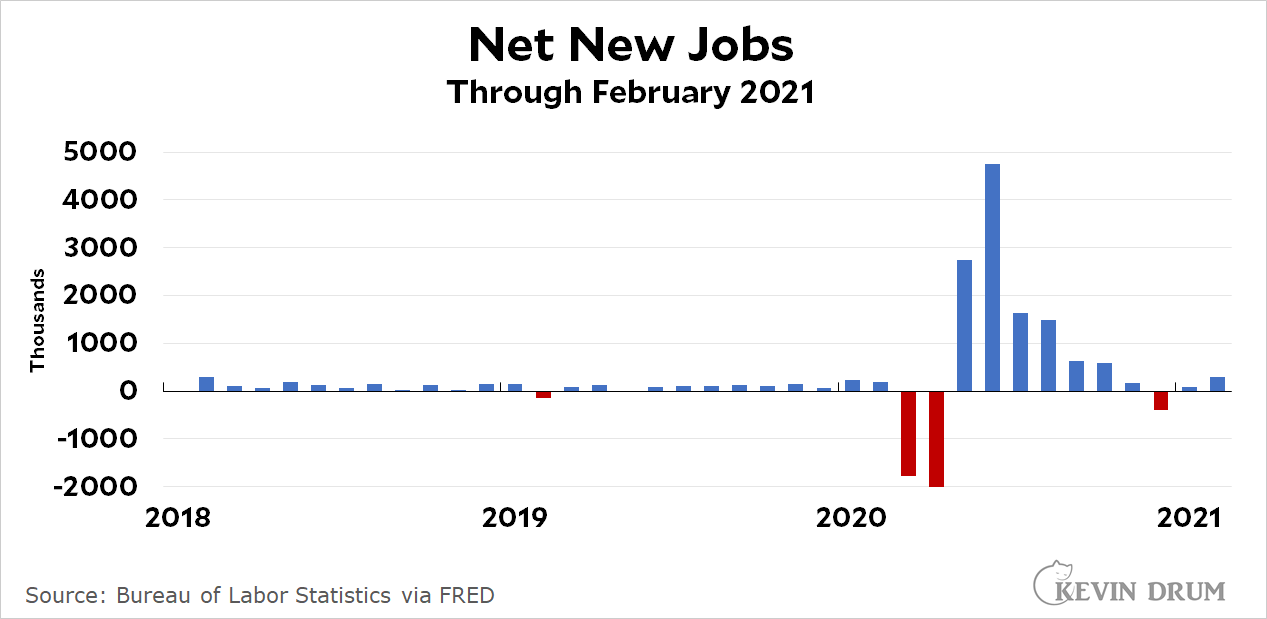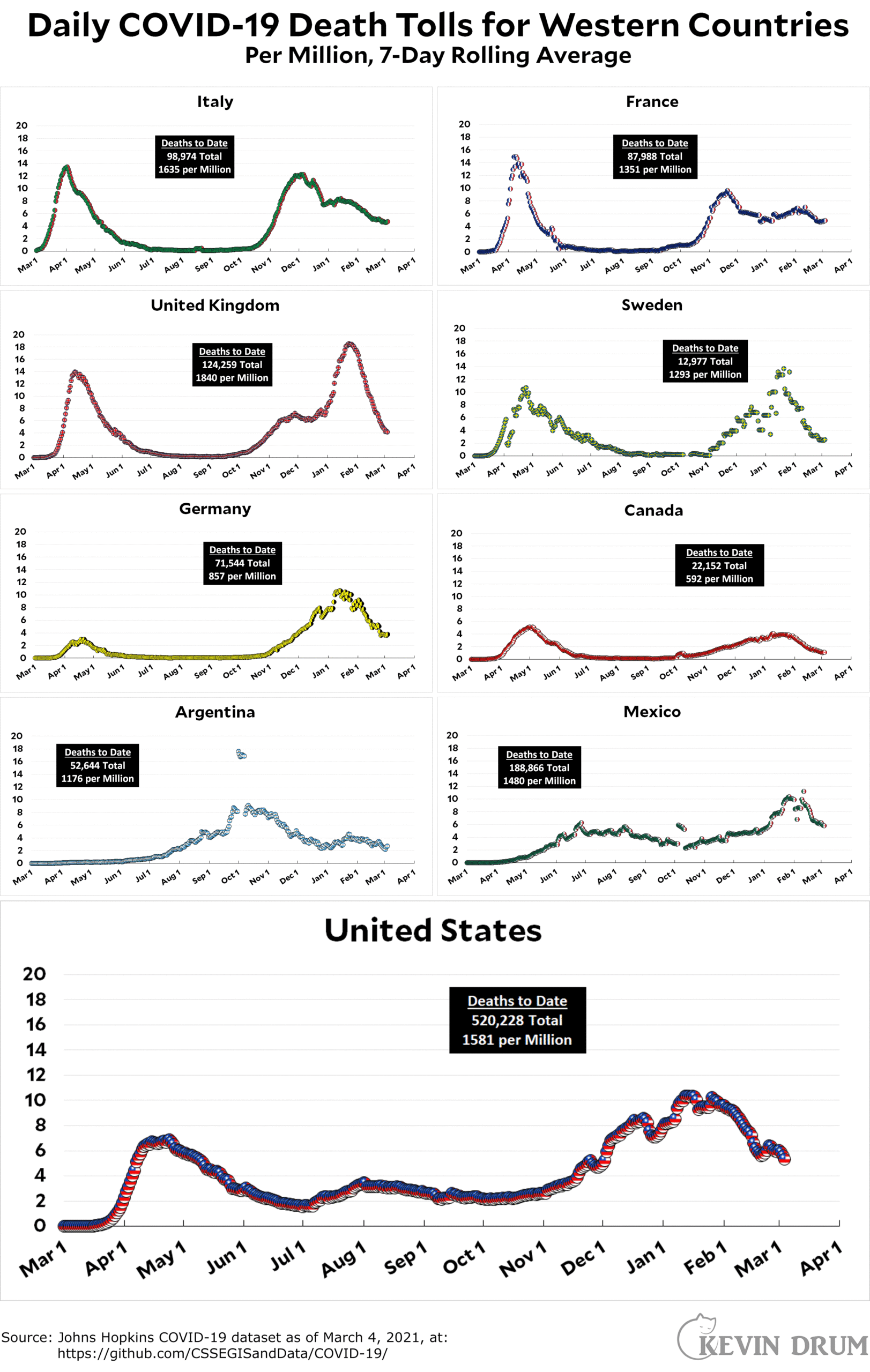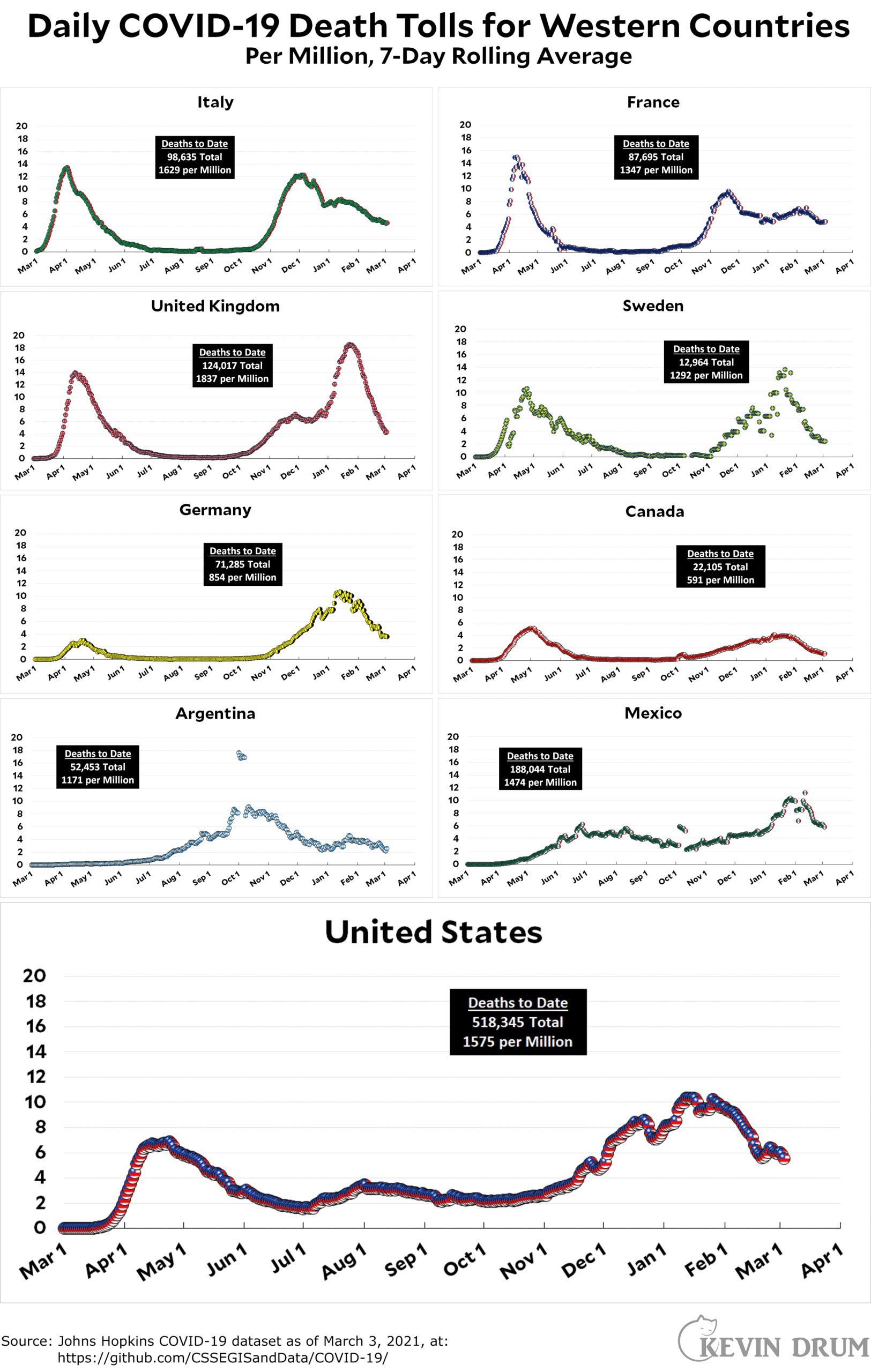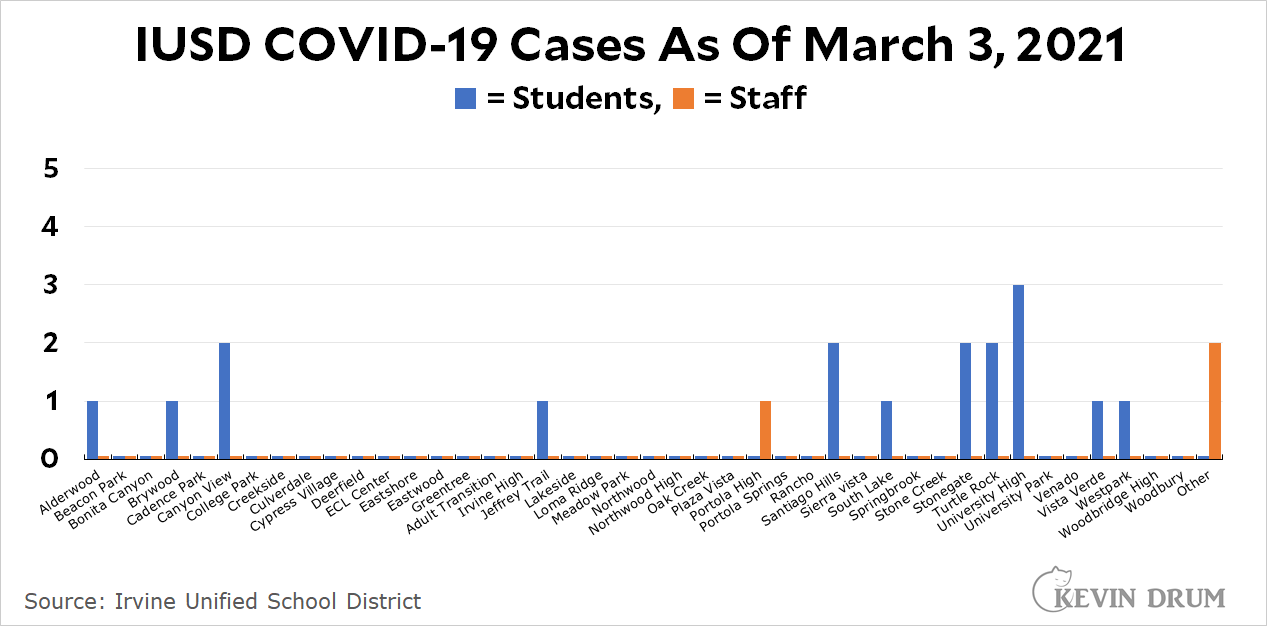Democrats in the House have passed HR1, an extensive package of voting reforms designed to fight back against the voter suppression efforts of Republicans. I find myself in an odd position about this: I firmly support passage of the bill, but I don't really care that much what's in it. Let me explain with a chart:
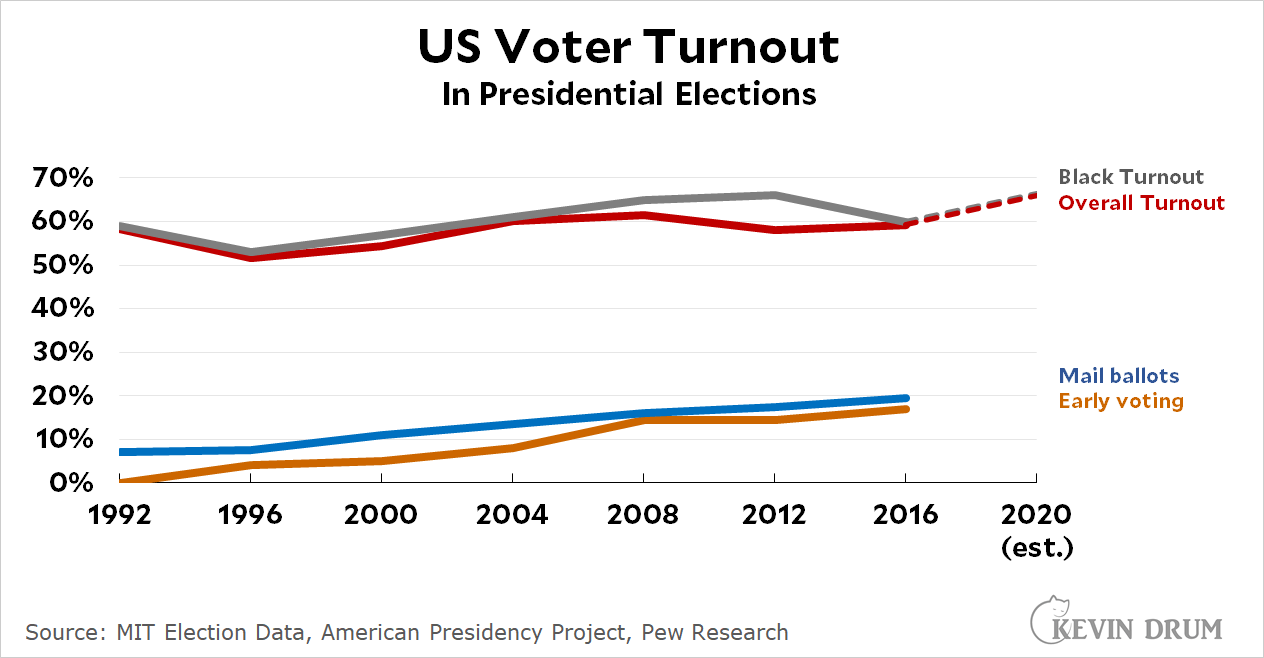
The chart starts in 1992, right before the motor voter law was passed. It goes through 2016, and thus includes all of the various Republican state laws enacted over the past couple of decades to restrict voting.
The results are pretty obvious: Voter turnout has been steady; Black voter turnout has gone up a bit; and both early voting and mail voting have increased. Roughly speaking, all those Republican voter suppression efforts just haven't had much impact on a national level.
On a national level. This is the key. On the level of individual states, it's likely that Republican efforts have been more successful. And this obviously makes a difference in Senate races, in the Electoral College, and in gerrymandering of House districts.
So here's the thing: it's absurd that state political parties are essentially able to control the voting process to their own advantage. No other democratic country that I know of allows this. Voting in national elections should be regulated at the national level, just as the Constitution suggests:
The Times, Places and Manner of holding Elections for Senators and Representatives, shall be prescribed in each State by the Legislature thereof; but the Congress may at any time by Law make or alter such Regulations...
Congress should set the rules for registration and voting and they should be the same for every state. This is so obvious that it barely even needs to be defended.
HR1 would do this. But once we've agreed to national rules, what should those rules be? It's here that I think we have a lot of leeway. As the chart above shows us, national voting has been pretty steady despite the hundreds of individual laws passed over the past couple of decades. Things like Sunday voting, early voting, mail voting, ID requirements, and so forth haven't had a big impact. I'd be perfectly happy to compromise considerably on those details as long as the resulting rules applied equally to every state and territory.
Needless to say, this would also put a stop to the tidal wave of state lawsuits that consume so much time after every election. Very often these cases turn on state legislatures that have tried to change the voting rules at the last minute in a desperate effort to squeeze out a few extra votes for their party, and a national law would put an end to that.
I think it's unlikely that HR1 will pass in the Senate. No matter what it includes, Republicans will conclude that they have a better chance of winning by allowing Republican states to create their own rules. But you never know. It's possible that Democrats could attract a dozen or so Republicans by insisting on national rules but making substantial concessions on the details of the rules. My take—subject to correction from experts—is that Democrats will be in good shape as long as they know what the rules are;¹ Republicans will be satisfied if we agree to some of their hobbyhorses; and the country will be far better off if voting regulations are national. We should give it a try and see if Republicans are willing to put their money where their mouths are.
¹As an example, photo ID laws are one of the worst examples of Republicans trying to suppress the votes of groups that vote Democratic. And yet, it turns out their effect was minimal. The reason is that once Democrats understood the new rules, they were able to turn that into higher energy among Black and Brown voters to get to the polls. On net, then, photo ID laws worked in both directions and had only the smallest effect on election results.

